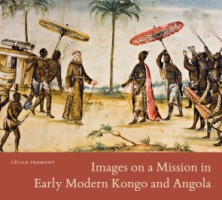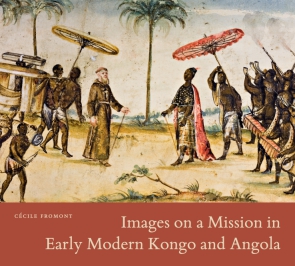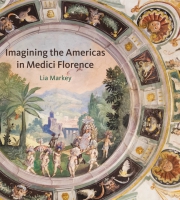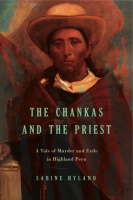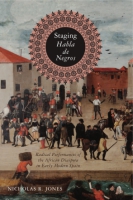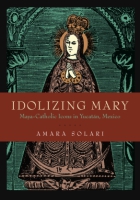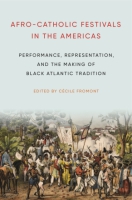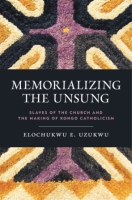Images on a Mission in Early Modern Kongo and Angola
Cécile Fromont
Winner of the 2023 Gustav Ranis International Book Prize
“A visually striking book. . . . Fromont’s book instructs us to reject the ongoing violence of imperialism and build a decolonial future that centres epistemologies and ways of being human that operate outside of the framework of colonialism, imperialism, and racial capitalism.”
- Description
- Reviews
- Bio
- Table of Contents
- Sample Chapters
- Subjects
This beautifully illustrated book includes full-color reproductions of all the images in the atlas, in conjunction with rarely seen related material gathered from collections and archives around the world. Taking a bold new approach to the study of early modern global interactions, art historian Cécile Fromont demonstrates how visual creations such as the Capuchin vignettes, though European in form and crafstmanship, emerged not from a single perspective but rather from cross-cultural interaction. Fromont models a fresh way to think about images created across cultures, highlighting the formative role that cultural encounter itself played in their conception, execution, and modes of operation.
Centering Africa and Africans, and with ramifications on four continents, Fromont’s decolonial history profoundly transforms our understanding of the early modern world. It will be of substantial interest to specialists in early modern studies, art history, and religion.
“A visually striking book. . . . Fromont’s book instructs us to reject the ongoing violence of imperialism and build a decolonial future that centres epistemologies and ways of being human that operate outside of the framework of colonialism, imperialism, and racial capitalism.”
“Images on a Mission in Early Modern Kongo and Angola is a beautifully executed and extensively annotated critical edition of what Fromont considers to be a Capuchin corpus of images from Kongo and Angola.”
“Cécile Fromont’s recent book, Images on a Mission in Early Modern Kongo and Angola, is a beautiful publication of seminal, seldom-seen images from early modern Central Africa. ... By connecting the sociopolitical conditions experienced by the Capuchin brothers in the Kingdom of Kongo and neighboring polities with the insistently didactic purpose of their visual and verbal output, Fromont successfully argues for a cross-cultural authorship as a corrective to interpretations that have not yet been able to account for the agencies of early modern Africans.”
“Images on a Mission in Early Modern Kongo and Angola promises to help reorient this particular corner of the early modern world, and will be enlightening to those interested in the paintings for their own merits, or as documentation of aspects of social life and material culture than were outside the scope of the Capuchins’ own intentions.”
“Fromont’s attention to the archive’s materiality and her vibrantly close reading of a large, unique body of sources are compelling. Images on a Mission in Early Modern Kongo and Angola reveals a much broader Capuchin visual genre than previously known, one that contains a distinctive approach to Africans (borne out of Capuchins’ experiences in central Africa) and to representing missionary experiences, and it significantly extends the visual archive for early modern European-African interactions.”
Cécile Fromont is Professor in the History of Art department at Yale University. She is the author of the award-winning book The Art of Conversion and the editor of Afro-Catholic Festivals in the Americas, the latter also published by Penn State University Press.
List of Illustrations
List of Tables
Acknowledgements
Introduction
1. “Nonsense”: Capuchin Images of Kongo and Angola Against Italian Preconceptions
2. Practical Guides to the Mission: The Capuchin Central-African Corpus
3. Images and Devotion
4. Images as Method
5. Images Against Idolatry
6. With “the Consent of the People, and the Secular Arm of the Prince”
7. Penned by Encounter: Capuchins, Central Africans, and the Making of a Cross-Cultural Discourse
Conclusion
Notes
Bibliography
Index
Download a PDF sample chapter here: Introduction
Mailing List
Subscribe to our mailing list and be notified about new titles, journals and catalogs.
